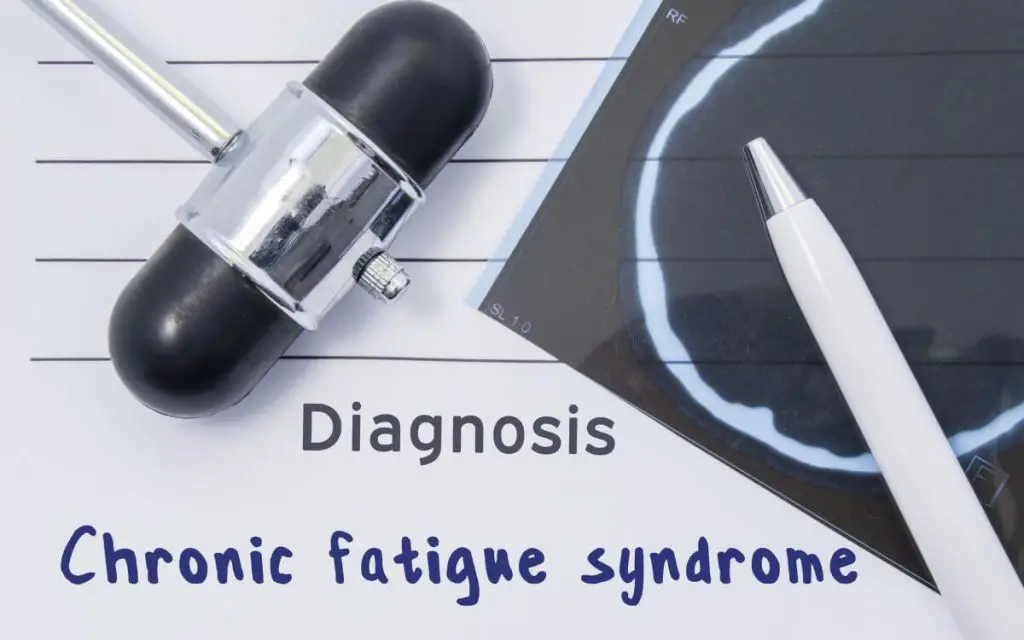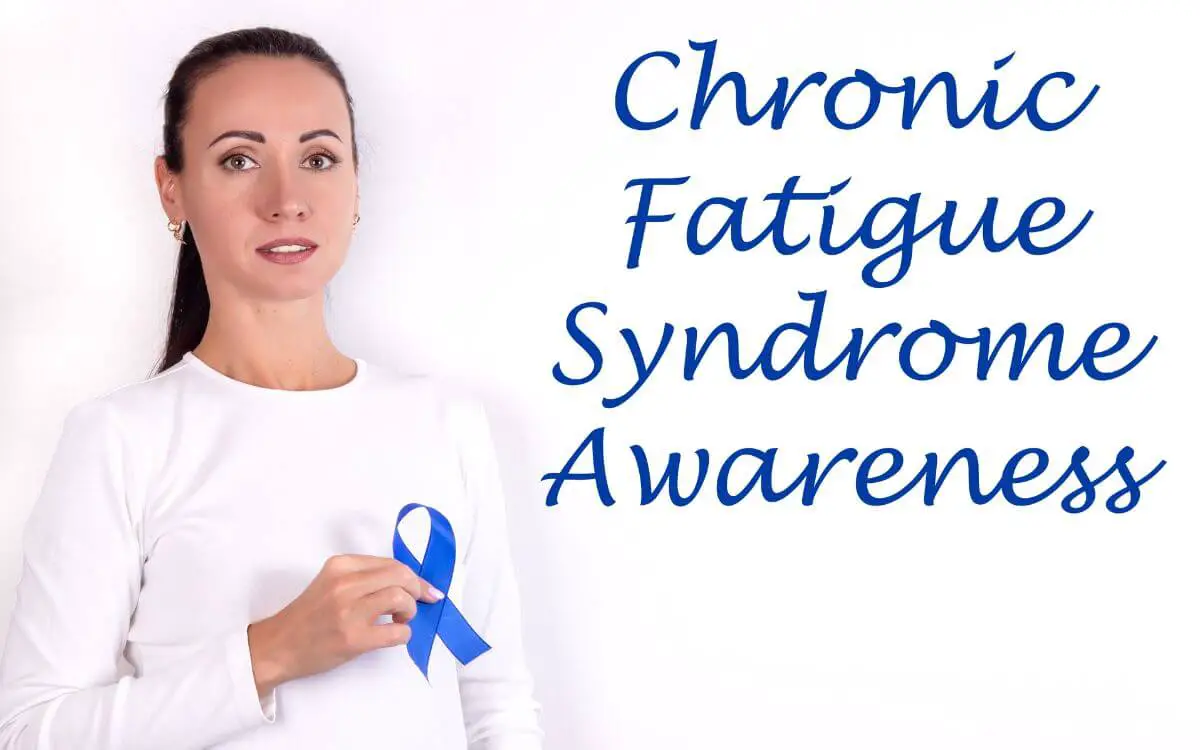Why chronic illness causes chronic fatigue?
It can be difficult to understand why chronic illness causes chronic fatigue because people often mix fatigue with chronic fatigue and chronic fatigue syndrome. Additionally, people oftentimes cannot understand the difference between fibromyalgia and chronic fatigue syndrome believing they are both the same disorder.
Since there is no single answer to why chronic illness causes chronic fatigue, it can get complicated if you want to get to the bottom of it. This article aims to help you understand this in the simplest way possible.
There are many causes of fatigue, including physical, psychological, and lifestyle factors. Medical conditions such as anemia, thyroid problems, or even sleep disorders can also cause fatigue, not to mention chronic conditions such as endometriosis and fibromyalgia.
Endometriosis is a condition in which endometrium-like tissue grows in locations outside the uterus causing pain and fatigue. Fibromyalgia is a condition that causes widespread chronic pain, brain fog, and fatigue. My wife suffers from both conditions.
At first glance, it looks like simple fatigue that is caused by either of the above chronic illnesses, however, due to the fact that both conditions are chronic, the fatigue they cause also becomes chronic.
This is why it is important to know the difference between fatigue, chronic fatigue, and chronic fatigue syndrome. I’ll explain them one by one in the next paragraph, firstly though, I want to explain what “chronic” actually means…
Chronic means long-term or recurring. In the context of chronic illness, it means that the symptoms last for a long time, oftentimes years. They can also come and go, or flare up at certain times. For example, someone with fibromyalgia might have more pain and fatigue during a flare-up.
Fatigue, chronic fatigue, and chronic fatigue syndrome.
Below I explain in a nutshell the difference between fatigue, chronic fatigue, and chronic fatigue syndrome. In the following paragraphs, I expand on each one of them in more detail separately.
Fatigue is a normal feeling after exertion or lack of sleep. It doesn’t interfere with your ability to function and goes away quickly with rest. Fatigue can also be a symptom of an underlying health condition. Fatigue is not the same as drowsiness, which is feeling the need to sleep.
Chronic fatigue is unusual and persistent fatigue that doesn’t improve with rest and gets worse with physical or mental activity. Chronic fatigue is different from regular fatigue in that it is more severe and lasts for a longer period of time. It can also be accompanied by other symptoms such as brain fog, headaches, and muscle pain.
Chronic fatigue syndrome (CFS) is a complex disorder characterized by severe fatigue that doesn’t improve with bed rest and may get worse with physical or mental activity. CFS is also accompanied by other symptoms such as brain fog, headaches, and muscle pain. CFS is a diagnosis of exclusion of other conditions.
Now let’s discuss them one by one…

Fatigue.
Fatigue can be a normal and healthy response to physical activity, emotional stress, or lack of sleep. But it can also be a symptom of an underlying medical condition. If you’re frequently tired and it’s affecting your quality of life, talk to your doctor. There are treatments available for many causes of fatigue…
Physical causes of fatigue:
Physical activity is one of the most common causes of fatigue. When you exercise regularly, your body becomes more efficient at using energy, which can lead to feelings of tiredness when you stop. This is known as post-exercise fatigue.
Other physical causes of fatigue include:
Anemia: This is a condition in which your blood doesn’t have enough healthy red blood cells to carry oxygen to your tissues.
Sleep disorders: Insomnia, sleep apnea, and restless legs syndrome are all types of sleep disorders that can cause fatigue.
Chronic pain: Pain can lead to fatigue by interfering with your ability to get a good night’s sleep. It can also make it difficult to keep up with your usual activities.
Medications: Some prescription and over-the-counter medications can cause fatigue as a side effect. These include antidepressants, blood pressure medications, and allergy medicines.
When you have a chronic illness, fatigue is one of the most common symptoms. It can be difficult to manage since it can be constant and overwhelming. Here are some tips to help you cope with this symptom:
- Get enough rest: This may seem like an obvious solution but it is often easier said than done. Make sure to get at least 7-8 hours of sleep each night and take breaks during the day if possible.
- Eat a healthy diet: Eating nutritious foods will help improve your energy levels and overall health. Avoid sugary and processed foods as they can make fatigue worse.
- Exercise regularly: Exercise has many benefits, including reducing fatigue. Try to get at least 30 minutes of moderate exercise each day.
- 4lLimit alcohol and caffeine: These substances can make fatigue worse so it is best to limit them or avoid them altogether.
- Manage stress: Stress can contribute to fatigue so it is important to find ways to manage it. Try relaxation techniques such as yoga or meditation.
- See your doctor: If you are struggling to cope with fatigue, talk to your doctor as there may be underlying medical conditions that need to be treated.
Chronic fatigue.
Chronic fatigue is different from fatigue that is experienced occasionally. It is more severe and can last for long periods of time, even years. If you are experiencing chronic fatigue, it is important to talk to your doctor so that you can receive the proper treatment.
So what do we know about chronic fatigue?
- Chronic fatigue is more severe than occasional fatigue and can last for long periods of time.
- It can be a symptom of an underlying medical condition.
- There are treatments available for many causes of chronic fatigue.
- Getting enough rest, eating a healthy diet, and exercising regularly can help reduce fatigue.
- If you are struggling to cope with chronic fatigue, talk to your doctor as there may be underlying medical conditions that need to be treated.
If you want to learn how to cope with your partner’s chronic illness, how to support her struggles, and manage a relationship with a chronic condition, I give away a FREE Chapter of my eBook: “Supporting a Chronically Ill Partner”.
This chapter alone has all the comprehensive information about acknowledging the struggles, including:
- A word to your partner.
- A word to you.
- Stepping on eggshells.
- Understanding her needs.
- How to acknowledge having a chronically ill partner?
- Acknowledging can be hard.
- 15 tips on how to do it!
Get the 1st Chapter FREE!
Chronic Illness for Partners

People with chronic fatigue often feel like they are not getting enough rest, no matter how much sleep they get. Chronic fatigue is often accompanied by other symptoms such as:
- Muscle pain
- Joint pain
- Headaches
- Digestive problems
- Difficulty concentrating
- Depression
- Anxiety
- Irritability
Chronic fatigue is not fibromyalgia!
Chronic fatigue is not a condition that should be taken lightly. It can have a debilitating effect on your life, making it difficult to function on a day-to-day basis. Fibromyalgia, on the other hand, is a condition that causes widespread pain and tenderness in the muscles and joints. While both conditions can cause fatigue, they are two distinct conditions.
There are a few key reasons why people often mix up chronic fatigue and fibromyalgia.
- First, both conditions share many symptoms, including fatigue, pain, and brain fog.
- Secondly, there’s no definitive test for either condition.
- Finally, the two conditions can often occur together.
That said, there are some key differences between chronic fatigue and fibromyalgia that are worth noting.
Chronic fatigue is often characterized by extreme tiredness that doesn’t improve with rest. People with chronic fatigue may also experience other symptoms, such as insomnia, joint pain, headaches, and memory problems. Chronic fatigue can last for months or even years.
Fibromyalgia, meanwhile, is a condition that causes widespread pain and tenderness in the muscles and joints. People with fibromyalgia may also experience fatigue, sleep problems, and difficulty concentrating.
Fibromyalgia can be difficult to diagnose because there is no single test that can confirm the diagnosis. Instead, doctors typically rely on a combination of medical history, physical examination, and blood tests to make a diagnosis. If you think you may have either condition, it’s important to see your doctor for an accurate diagnosis.
Treatment for chronic fatigue or fibromyalgia often includes medications and lifestyle changes. In some cases, such as when fatigue is caused by an underlying medical condition, treatment may also include specific therapies targeted at that condition.

Chronic fatigue syndrome.
Myalgic encephalomyelitis (ME) is a Latin name for chronic fatigue syndrome (CFS). Both conditions are usually shown together as ME/CFS s a condition that causes chronic fatigue and pain as well as other symptoms such as cognitive difficulties.
There are many potential causes of chronic fatigue syndrome, including viral infections, psychological stress, and hormonal imbalances. It is important to note that there is no single cause of chronic fatigue syndrome and that it is likely caused by a combination of factors.
Chronic fatigue syndrome is a diagnosis given to people who have chronic fatigue that lasts for 6 months or more and is not caused by another medical condition. It is important to note that chronic fatigue syndrome is a diagnosis of exclusion, meaning that other conditions must be ruled out before a diagnosis can be made.
CFS is a condition that causes extreme tiredness. People may feel so exhausted that they can’t do even simple things, like getting dressed or brushing their teeth. The condition can last for years, and it’s often hard to treat.
There’s no one cause of CFS. It may be caused by a combination of factors, including viral infections, immune system problems, and hormonal imbalances. Some experts believe that chronic fatigue syndrome is a physical reaction to psychological stress.
There’s no cure for chronic fatigue syndrome, but there are treatments that can help manage the symptoms. These include exercise, relaxation techniques, and counseling. Some people also find that making changes to their diet helps.
Conclusion!
It can be confusing to know why chronic illness causes chronic fatigue because common fatigue, chronic fatigue, and chronic fatigue syndrome sound similar but they are three distinct conditions.
Common fatigue is a feeling of tiredness that is caused by everyday activities and typically goes away with rest.
Chronic fatigue is a more persistent form of fatigue that lasts for months or even years. People with chronic fatigue may also experience other symptoms, such as pain, brain fog, and difficulty sleeping.
Chronic fatigue syndrome is a diagnosis given to people who have chronic fatigue that lasts for 6 months or more and is not caused by another medical condition.
Again, there is no definitive test for chronic fatigue syndrome, and it is often hard to treat. However, there are treatments that can help manage the symptoms. These include exercise, relaxation techniques, and counseling. Some people also find that making changes to their diet helps.
Get the 1st Chapter FREE!
Chronic Illness for Partners



About Me
Hi, I’m Lucjan! The reason why I decided to create this blog was my beautiful wife, who experienced a lot of pain in life, but also the lack of information about endometriosis and fibromyalgia for men…
